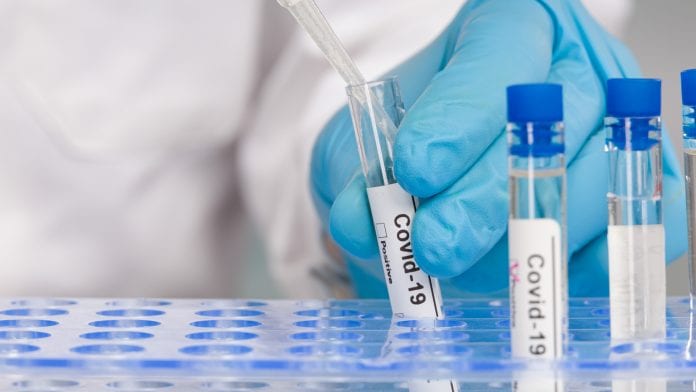
According to a new study, in order to detect a COVID-19 infection in a patient an antibody test must be carried out at the right time.
In the most comprehensive review to date, experts at the University of Birmingham and from universities around the globe have analysed data to examine the accuracy of antibody tests for the novel COVID-19 infection. The team have found that the timing of an antibody test is critical for detecting the infection.
The findings have been published in the Cochrane Database of Systematic Reviews.
Detecting the virus
The researchers examined all available test accuracy evidence for antibody tests that have been published up to the end of April, finding that the tests are not accurate enough to confirm whether someone has the COVID-19 virus if used in the first two weeks after symptoms appear.
They found that tests are only likely to be useful in detecting previous SARS-CoV-2 infection if used at least 14 days after the onset of symptoms, but say that studies show that the tests will miss one in ten cases of COVID-19.
The researchers, however, have cautioned against over-reliance on the figure as the studies were small, poorly reported, and done in select patient groups, and because of the possibility that accuracy will be lower when tests are used in the community, as the tests have mostly been evaluated in hospitalised patients – making it unclear whether they can detect lower antibody levels associated with milder and asymptomatic COVID-19 disease.
Jon Deeks, Professor of Biostatistics and head of the Test Evaluation Research Group at the University of Birmingham, commented: “We’ve analysed all available data from around the world and discovered clear patterns telling is that timing is vital in using these tests. Use them at the wrong time and they don’t work.
“There are promising tests, but there isn’t enough evidence to be able to identify the best tests yet, and we need to continue analysing data as it becomes available – particularly from non-clinical settings where individuals are displaying less severe symptoms, and following people over longer time periods.”
Low sensitivity tests
The researchers discovered that all antibody tests showed a low ability to detect the disease during the first week after symptoms, rising in the second week, and reaching their highest values in the third. Little data were available beyond 35 days.
Professor Deeks: “Accurate testing is vital – these tests may help identify COVID-19 in people who have had symptoms for two or more weeks but never had a swab test, and identifying how many have had the SARS-CoV-2 infection to assess disease spread and the need for public health interventions. In time, we will learn whether having previously had the infection provides individuals with immunity to future infection, which will indicate the personal value of having this test.
“This is a fast-moving field and we plan to update this review regularly as more studies are published. However, the design, execution and reporting of studies of the accuracy of COVID-19 tests require considerable improvement, and action needs to be taken to ensure that all results of test evaluations are available in the public domain and not withheld by test manufacturers to ensure we can provide the best estimates of the accuracy for these tests.”






















